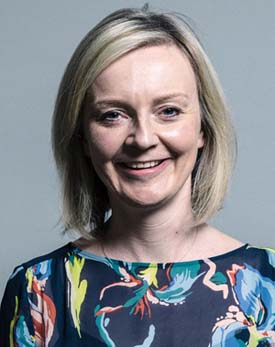In Britain, majority party members choose the prime minister as head of government.
Ordinary Brits have no say over who leads them or in what ways.
The UK prime minister chairs the cabinet and selects ministers in similar fashion to how bureaucratic posts are filled by US regimes.
Unlike US separation of powers, the UK prime minister is also a member of parliament.
In the US, the Constitution’s Article II Executive Branch, Section 1 President, Clause 1 Executive Vesting Clause states:
“The executive power shall be vested in a president of the US (to) hold…office during the term of four years, and, together with the vice president, chosen for the same term, be elected” as the Constitution further explains.
It’s the law of the land.
In Britain, there’s no statute on selecting a prime minister.
The process is based on longstanding tradition whereby the monarch formally appoints the individual chosen by majority ruling party members.
UK prime ministers also serve as first lord of the treasury, civil service minister and minister responsible for national security.
Since 2019, prime ministers are also designated minister of the union, ousted BoJo the first PM given the title.
On Monday, the establishment London Guardian reported the following: As expected, foreign secretary, Liz Truss, was selected as Britain’s 56th PM to replace ousted BoJo over former chancellor of the exchequer, Rishi Sunak—by a vote of 81,326 (57.4%) to 60,399 42.6%.
Today at Balmoral Castle in Aberdeenshire, Scotland, Queen Elizabeth II will make the selection official.
Britain’s changing of the guard comes when tens of thousands of workers are striking for higher wages at a time of soaring inflation.
According to a Bank of England forecast, it’s expected to reach 13.2% in October—driven largely by soaring energy costs because of sanctions war on Russia.
As long as it continues unabated, all the queen’s horses and all the queen’s men cannot bring it down while the ruling regime continues to shoot itself in the foot.
Remarks by Truss after selected won’t change a thing, hyperventilating as follows, saying: “I will deliver a bold plan to cut taxes and grow our economy (sic).”
“I will deliver on the energy crisis [sic], dealing with people’s energy bills, but also dealing with longterm issues…on energy supply [sic],” adding: “I know that our beliefs resonate with the British people [sic]: Our beliefs in [long ago abolished UK] freedom[s] [sic], in the [nonexistent] ability [of Brits] to control” their lives under growing tyranny.
Notably like her predecessors John Major, Tony Blair, Gordon Brown, David Cameron, Theresa May and BoJo, she’ll “deliver” exclusively for Britain’s privileged class at the expense of the great majority—ill-served and exploited so UK monied interests can benefit to the maximum at the expense of ordinary Brits.
According to Political History Professor, Steven Fielding: A Truss regime may not go down well with ordinary Brits because “[s]he’s basically [BoJo] 2.0.”
She “made it very clear that [she’s) a loyal [BoJo] supporter.”
She’ll “find it very difficult to disentangle herself from the whole Johnson shadow.”
And this from UK columnist, Simon Jenkins, saying: “The first thing [Truss must do is] U-turn on everything she believes in,” adding: Straightaway, “consumers, producers and retailers are screaming in agony” over unaffordable energy and other high costs.
Because of what’s going on with no prospect for relief, Truss’ hyperbole aside, “[t]housands of small businesses face bankruptcy.”
And she enters office with no public mandate.
She completed her leadership campaign with nothing suggesting an ability to win hearts and mind “beyond stamina” it took to get through it all.
It’s at a time when Britain’s energy policy is “scandalously floundering.”
Her “immature politics” needs a rapid makeover unlikely to materialize.
“Her [public] utterances [resemble] a student politician on the make,” said Jenkins.
She’s more likely to “opportunist,” not “pragmatic,” a divider, not a uniter.
As for campaign promises, making them and delivering for ordinary Brits are highly likely to be worlds apart.
According to opposition Labor Party leader, Kier Starmer: “After 12 years of the Tories, all we have to show for it is low wages, high prices, and a Tory cost of living crisis.”
“Only Labor can deliver the fresh start our country needs.”
A Russian Foreign Ministry statement said it sees no prospect for improved relations with Britain—notably because Truss repeatedly vowed to continue US war on the Russian Federation by other means.
According to director of the Russian Foreign Ministry’s second European department, Sergey Belyaev:
It’s “important to understand that [ousted BoJo] also took over from predecessors [hellbent on] destroying the foundations of Russian-British cooperation.”
“[E]very time after another provocation by the British, accompanied by unfounded accusations and unilateral sanctions, we called on the British side to reason and refrain from actions that harm ties between our countries and peoples”—in vain.
On all things related to Russia and Ukraine, as well as how empowered UK regimes serve privileged interests exclusively at the expense of the general welfare, changing of the guard on Monday won’t change a thing going forward.
Stephen Lendman lives in Chicago. He can be reached at lendmanstephen@sbcglobal.net. His new book as editor and contributor is titled “Flashpoint in Ukraine: How the US Drive for Hegemony Risks WW III.” Listen to cutting-edge discussions with distinguished guests on the Progressive Radio News Hour on the Progressive Radio Network.



